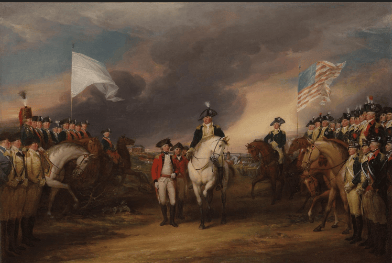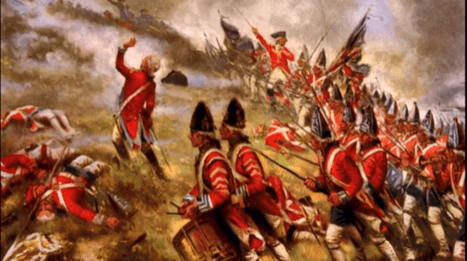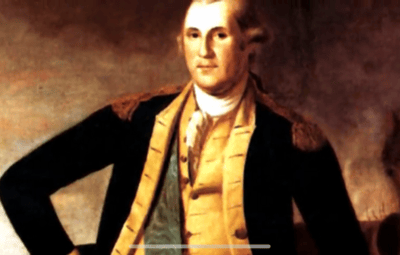The Revolutionary War: Forging a Nation's Destiny
The American Revolutionary War, spanning from 1775 to 1783, was a defining moment in history that transformed thirteen British colonies into the United States of America. It was a conflict rooted in grievances over taxation, representation, and colonial autonomy, ultimately leading to a struggle for independence and the birth of a new nation.
Casey Adams
10/10/20233 min read






Origins of the Conflict
The roots of the American Revolutionary War lay in growing tensions between the British Empire and its North American colonies following Britain's victory in the Seven Years' War (1756–1763).
Although the war solidified British dominance in North America, it left the empire heavily in debt.
To recoup financial losses, the British government introduced a series of taxes and regulations that inflamed colonial resentment.
Among the most controversial measures were:
The Stamp Act (1765): Imposed direct taxes on printed materials in the colonies.
The Townshend Acts (1767): Levied duties on imported goods, leading to widespread boycotts.
The Tea Act (1773): Granted the British East India Company a monopoly on tea sales, sparking the Boston Tea Party.
The Intolerable Acts (1774): Passed in response to the Boston Tea Party, these laws restricted colonial self-government and increased British military presence.
The Outbreak of War
Tensions reached a boiling point when British authorities attempted to disarm colonial militias and suppress growing revolutionary sentiment.
On April 19, 1775, the Battles of Lexington and Concord marked the beginning of open conflict between British forces and American militia.
The skirmishes, referred to as "the shot heard 'round the world," galvanized support for the Patriot cause.
In June 1775, the Second Continental Congress established the Continental Army and appointed George Washington as its commander-in-chief.
Despite being outnumbered and outgunned, colonial forces achieved key early victories, including the Siege of Boston (1775–1776), which forced British troops to evacuate the city.
Declaring Independence
The ideological stakes of the war became explicit with the adoption of the Declaration of Independence on July 4, 1776.
Drafted primarily by Thomas Jefferson, the document formally severed political ties with Britain and articulated the colonies’ right to self-rule.
The signing of the Declaration solidified the Patriots’ determination to fight for complete independence rather than a negotiated settlement.
Major Battles and Turning Points
The war saw numerous battles, many of which proved decisive in shaping the outcome of the conflict:
Battle of Long Island (August 1776): The British captured New York City, forcing Washington’s army to retreat.
Battle of Trenton (December 1776): Washington’s surprise attack on Hessian forces boosted American morale.
Battle of Saratoga (October 1777): A turning point in the war, this American victory convinced France to officially ally with the colonies.
Siege of Yorktown (October 1781): British General Cornwallis surrendered after being trapped by American and French forces, effectively ending major combat operations.
International Involvement
The American Revolution was not fought in isolation.
France, Spain, and the Dutch Republic provided crucial support to the American cause.
France, in particular, supplied weapons, funding, and military assistance, culminating in the pivotal involvement of the French navy at the Battle of Yorktown.
Spain and the Dutch Republic also waged war against Britain, stretching its resources thin across multiple global fronts.
The Treaty of Paris and Aftermath
After Cornwallis’ surrender at Yorktown, peace negotiations began in earnest.
The Treaty of Paris, signed on September 3, 1783, formally ended the war.
Under its terms, Britain recognized American independence and ceded vast territory stretching to the Mississippi River.
The Revolutionary War had profound and lasting effects on American society and government.
It led to the drafting of the U.S. Constitution in 1787 and the creation of a new nation founded on democratic principles.
The war also set a precedent for revolutionary movements worldwide, inspiring struggles for independence in other parts of the world.
Conclusion
The American Revolutionary War was a defining moment in world history, transforming thirteen British colonies into a sovereign nation.
Though the war was long and arduous, the resilience and determination of the Patriot forces, combined with international alliances, ultimately secured American independence.
The legacy of the Revolution continues to shape the ideals of liberty, democracy, and self-determination around the world.
References:
Ellis, Joseph J. "American Creation: Triumphs and Tragedies at the Founding of the Republic." Vintage Books, 2008.
Ferling, John E. "Almost a Miracle: The American Victory in the War of Independence." Oxford University Press, 2009.
Middlekauff, Robert. "The Glorious Cause: The American Revolution, 1763–1789." Oxford University Press, 2005.


General George Washington
The Battle of Bunker Hill 1775
The Continental Army Led by General Washington

